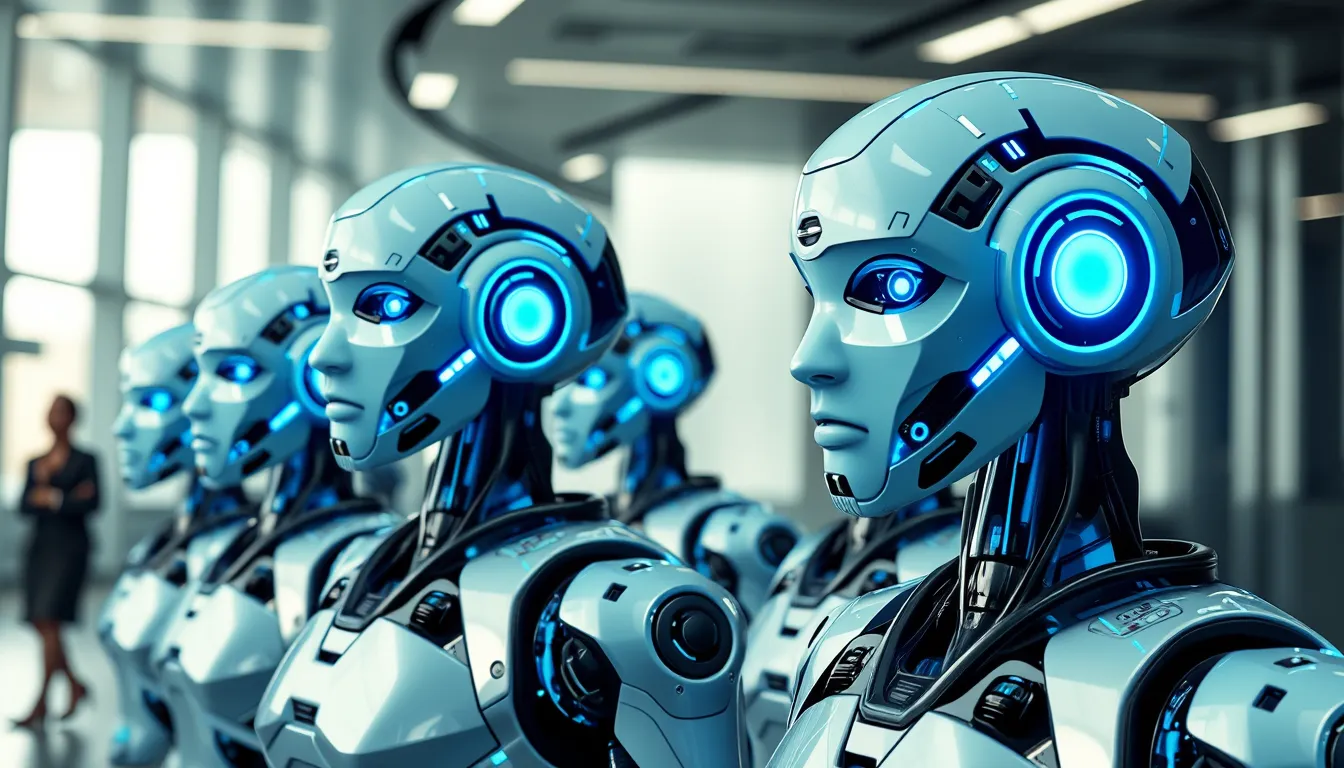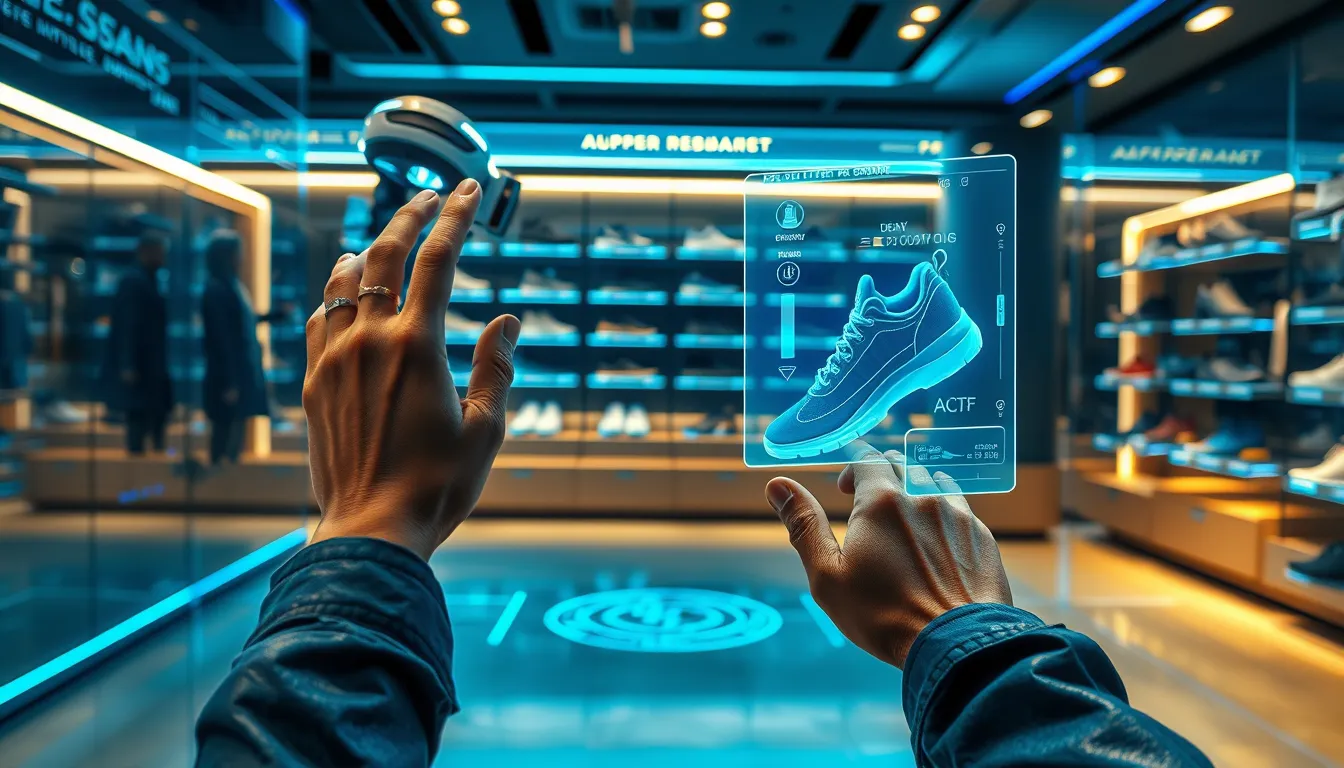Now Reading: Revolutionary SoftBank AI Robotics: Transforming Industries
-
01
Revolutionary SoftBank AI Robotics: Transforming Industries
Revolutionary SoftBank AI Robotics: Transforming Industries

Revolutionary SoftBank AI Robotics: Transforming Industries
Introduction
In the rapidly evolving world of technology, the emergence of intelligent automation is reshaping global industries. One of the most revolutionary developments is the recent commitment by SoftBank, demonstrated through its landmark $5.4 billion investment in AI-driven robotics. This significant move not only reinforces SoftBank’s position as a leader in technological innovation but also marks a pivotal moment for industrial automation. In this article, we explore how SoftBank AI robotics is paving the way for innovative processes in manufacturing, logistics, healthcare, and beyond.
Investment Overview
SoftBank’s strategic decision to invest $5.4 billion in robotics places the company at the forefront of an industry on the brink of transformation. This SoftBank AI robotics initiative is designed to develop and deploy intelligent systems that can operate autonomously in complex environments. Notable highlights include:
- A significant capital injection aimed at accelerating the development of advanced robotics.
- Strategic partnerships with leading AI and robotics firms globally.
- A comprehensive focus on improving industrial automation and operational efficiency.
By focusing on AI-driven robotics, SoftBank is not just investing in technology—it is also investing in the future workforce and in the evolution of industries that rely on precision, speed, and efficiency.
Innovations in AI-Driven Robotics
SoftBank AI robotics represents a paradigm shift in how robots are integrated into various sectors. The investment is channeling resources into systems powered by deep learning and advanced sensors, which enables these machines to learn from their environment and adapt to new challenges. Key advancements in this area include:
Adaptive Deep Learning Systems
The new robots are equipped with adaptive deep learning algorithms that improve performance over time. This ensures that operations become smoother and more efficient in the long run. For example, in manufacturing, these robots can monitor production lines, detect defects automatically, and optimize workflows in real time.
Enhanced Sensor Integration
With advanced sensor technology, these AI-driven robotics can navigate dynamic environments and accurately assess surroundings, making them invaluable in both indoor and outdoor settings. Such capabilities are especially beneficial for logistics and warehouse operations where precision is vital.
External Collaboration and Industry Partnerships
SoftBank’s commitment extends beyond its internal projects. In a bid to foster industry-wide innovation, the conglomerate has established partnerships with various technology leaders. Interested readers can learn more about SoftBank and its innovative pursuits on the official SoftBank website. This level of collaboration is indicative of SoftBank’s dedication to revolutionizing how industries operate through the power of AI.
Impact on Industrial Automation
The implications of this investment are far-reaching. SoftBank AI robotics plays a crucial role in advancing industrial automation across multiple sectors:
- In manufacturing, robots can execute repetitive tasks with higher accuracy, reducing human error and increasing productivity.
- In logistics, intelligent systems streamline operations, optimize delivery routes, and manage inventory more effectively.
- In healthcare, autonomous robots are beginning to assist in patient care, manage supplies, and even participate in surgical procedures with ever-increasing precision.
The confidence in automation is further underscored by the growing global trend of integrating AI across industrial practices. Companies are increasingly identifying that intelligent systems, such as those developed under the umbrella of SoftBank AI robotics, are the future of efficient business operations.
Future Prospects and Challenges
While the benefits of SoftBank AI robotics are clear, there are future challenges that will need addressing as these technologies become more prevalent. Some considerations include:
- Ethical and Regulatory Frameworks: As AI-driven systems become integral to daily operations, establishing robust guidelines for safety and ethical usage is paramount.
- Technological Adaptation: Industries must ensure a smooth transition by training the workforce to collaborate effectively with intelligent systems.
- Global Competitiveness: With SoftBank paving the way, competitors will likely accelerate their own investments in robotics to keep pace, leading to a rapidly evolving market.
Conclusion
In conclusion, SoftBank’s landmark $5.4 billion investment in AI-driven robotics is far more than a financial maneuver—it is a bold leap toward a future dominated by intelligent automation and transformative technological advancements. The soft yet powerful drive of SoftBank AI robotics is already reshaping industrial practices, enabling precision in manufacturing, optimizing logistics, and enhancing overall efficiency in various sectors. As industries across the globe continue to integrate these cutting-edge technologies, the promise of a future where intelligent systems work hand in hand with humans appears more attainable than ever.
This revolutionary approach to industrial automation highlights both the limitless potential and the inevitable challenges of integrating AI-based systems into our everyday lives. As SoftBank continues to invest in and advance the field of AI-driven robotics, we can expect to witness a transformative impact on industries worldwide, paving the way for smarter, safer, and more efficient operations in the near future.

























